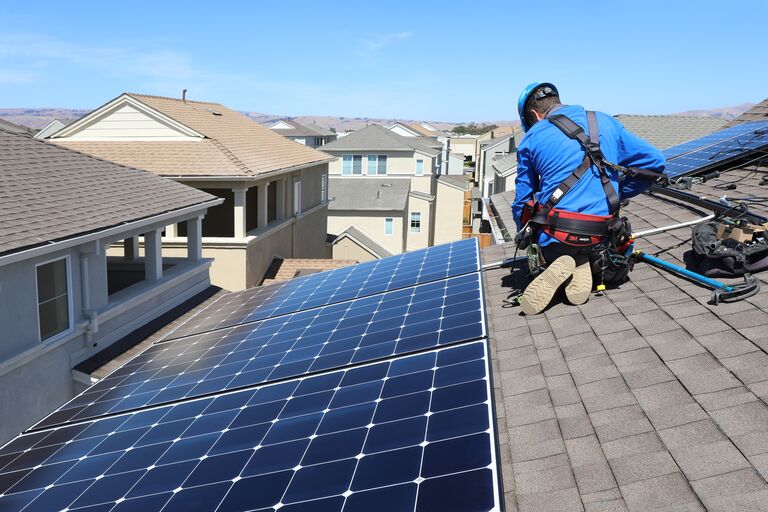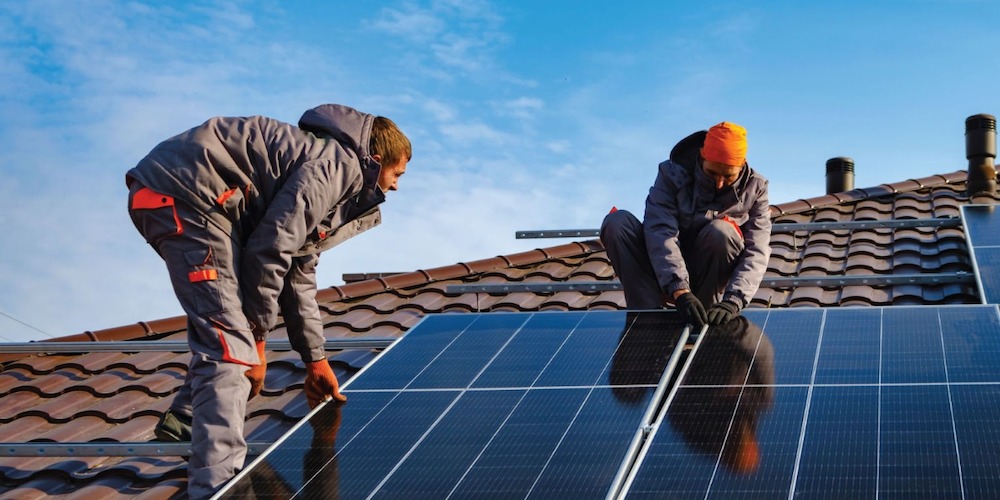Exactly How to Pick the Right Solar Energy Installation for Your Energy Demands
Choosing an appropriate solar power installation requires a methodical strategy that starts with a clear understanding of your energy intake patterns and awaited future demands. Elements such as the type of solar modern technology, installment costs, and readily available rewards play pivotal functions in making a notified decision.
Assess Your Power Needs
Analyzing your power needs is an important first action in the solar power installment process. Comprehending your current and future energy consumption will certainly direct the layout of an efficient solar system customized to your demands. Beginning by examining your energy expenses from the past year to identify your ordinary regular monthly energy usage, commonly measured in kilowatt-hours (kWh) This information will certainly supply a foundation for computing the size of the solar system you may need.
Take into consideration seasonal variants in power usage, as certain months may demand more power because of heating or cooling demands. Furthermore, examine any organized adjustments in way of living or home, such as the acquisition of electrical automobiles or home growths, which might enhance your energy demands in the future.
Once you have an extensive understanding of your energy consumption, you can figure out the suitable solar capacity needed to fulfill those demands. This analysis not only helps in sizing the solar installment yet also notifies decisions about energy storage space options and potential grid link needs. solar photovoltaic. Eventually, precisely gauging your power requires guarantees that your solar power system runs effectively, delivering the advantages of eco-friendly energy in positioning with your usage patterns

Evaluate Solar Technology Options
When considering a solar power installation, it is important to review the numerous solar modern technology alternatives readily available to make certain the system lines up with your energy needs and budget. The primary technologies consist of monocrystalline, polycrystalline, and thin-film solar panels, each offering distinct benefits and downsides.
Monocrystalline panels are known for their high performance and performance in minimal space, making them suitable for domestic installments with less roof covering area. Thin-film solar panels are light-weight and adaptable, perfect for unusual surfaces, however they generally have lower effectiveness and call for more area to generate the exact same energy outcome.
Along with panel types, think about solar inverters, which convert the direct present created by the panels right into alternating current for home use. String inverters, microinverters, and power optimizers each have distinct advantages that can influence system efficiency. Evaluating these alternatives will assist you make an enlightened choice that meets your power demands properly.
Consider Installation Costs
Recognizing setup expenses is critical for anyone considering a solar power system. These look at here prices can differ significantly based on several factors, consisting of system size, kind of panels, and installation complexity. A common property solar installation may range from $15,000 to $30,000 prior to motivations, which can be a significant upfront investment.
To accurately assess installment prices, it is essential to acquire in-depth quotes from several solar companies. These quotes ought to break down the costs of devices, labor, permits, and any added accessories required for the installation. Pay close focus to the top quality of materials being provided, as higher-quality panels and inverters can lead to far better effectiveness and longevity, possibly balancing out greater first expenses.
Furthermore, consider the lasting ramifications of setup expenses. A less expensive installation could save money upfront yet could bring about higher upkeep prices or decreased power production with time. It is likewise suggested to evaluate financing alternatives, such as solar finances or leases, which can affect your total economic commitment.
Research Study Citizen Rewards
Checking out regional incentives can considerably influence the total cost of a solar power installment. Several areas provide a range of economic motivations focused on promoting renewable energy usage, making solar energy extra easily accessible and affordable for property owners and organizations alike.
These rewards may consist of federal tax obligation credit scores, state discounts, and local utility business programs that supply cash motivations or web metering options. The Federal Financial Investment Tax Debt (ITC) allows you to deduct a significant portion of your solar installment costs from your federal taxes. State-specific motivations can even more boost these savings, commonly in the form of direct money discounts or tax debts.
Furthermore, some regional governments might offer real estate tax exemptions for solar setups, making sure that your financial investment does not increase your residential property tax obligation responsibility. Investigating these motivations can reveal substantial savings, which can influence your decision on the dimension and kind of solar system to install.

Pick a Reliable Installer
Choosing a reputable installer is important to guaranteeing the success and durability of your solar energy system. The installment procedure significantly affects the efficiency and effectiveness of your solar panels, making it critical to choose a contractor with a proven record. Begin by researching neighborhood installers through online reviews and testimonials. Websites such as the Bbb can give understanding right into client fulfillment and solution dependability.
Next, validate the installer's credentials, including licenses, see this page qualifications, and insurance coverage. A credible installer must hold certifications from identified organizations, such as the North American Board of Qualified Power Specialists (NABCEP), showing a high degree of knowledge. Additionally, ask about the installer's experience with comparable jobs, specifically in your area, as regional environment and guidelines can influence setup practices.
Demand multiple quotes and compare them not just on price however also on the high quality of tools and warranties used. A trustworthy installer ought to give transparent details about their products and services, assisting you make an educated decision. By investing time in picking a credible installer, you will certainly enhance the general performance and toughness of your solar power system.
Final Thought
To conclude, selecting the Continued suitable solar energy installment necessitates a complete examination of energy demands, an understanding of readily available solar technologies, and a careful consideration of setup costs. Exploring local incentives can enhance financial benefits, while selecting a reliable installer ensures quality workmanship and reliability. solar photovoltaic. By methodically evaluating these aspects, individuals can attain an optimum solar remedy that fulfills both existing and future power needs, eventually adding to lasting power methods and expense savings over time